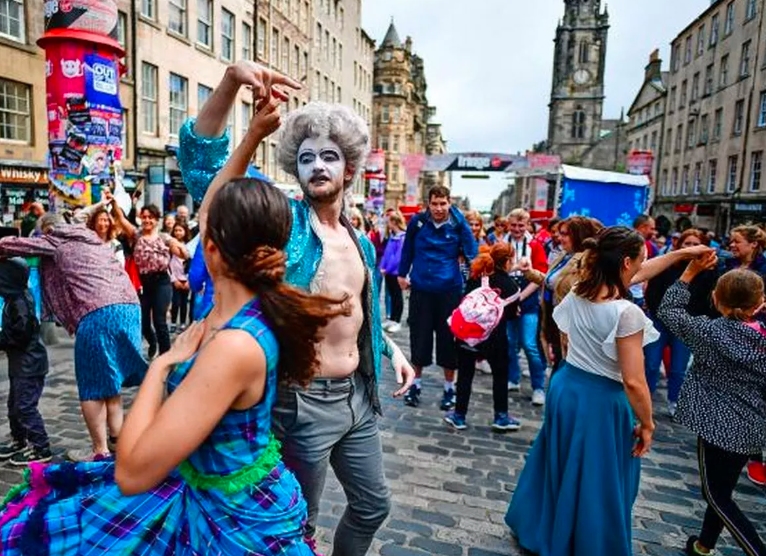The Edinburgh Festival Fringe Society, the organisation that runs the world’s largest arts festival, has issued a new plea for financial support from the Scottish Government to help it recover from the impact of the Covid-19 pandemic and secure its long-term sustainability.
Fringe Society faces ‘crisis point’
The Fringe Society, which supports artists, venues, producers and audiences, said it was facing a ‘crisis point’ after losing 80% of its income in 2020 and 2021 due to the cancellation and scaling back of the festival. It said it had used up its reserves and relied on loans and grants to survive, but warned that it could not continue to operate without further funding.
The society said it needed £7.5 million over the next three years to rebuild its infrastructure, improve its accessibility and diversity, and develop a new year-round community hub for the festival. It also said it needed £1.5 million annually to cover its core costs and deliver its services.
The society’s chief executive, Shona McCarthy, said: “The Fringe is a vital part of Scotland’s cultural, social and economic fabric, and we believe it deserves significant and sustained investment from the Scottish Government. We are not asking for a bailout, but for a partnership that recognises the value of the Fringe and supports its recovery and future growth.”

Government pledges £8.6 million for festivals
The Scottish Government has previously announced an £8.6 million boost for Scotland’s festival economy in the Spring Budget, of which £7 million was earmarked for a new Fringe community hub. However, the society said this funding was not enough to address its immediate and long-term needs, and urged the government to allocate more resources to the festival sector.
The government said it recognised the importance of the festivals and was committed to supporting them. A spokesperson said: “We have provided unprecedented levels of support to the culture sector throughout the pandemic, including £97 million of UK Government consequentials, which has helped protect jobs and support the sustainability of organisations across the sector. We have also invested £10 million in the Dunard Centre, Edinburgh’s first dedicated new space for music and the performing arts in 100 years.”
The spokesperson added: “We are working closely with the Fringe Society and other festival partners to ensure the successful delivery of the Fringe community hub, which will provide a permanent home for the festival and a year-round resource for artists and audiences. We will continue to engage with the society and the wider sector on their funding needs and priorities as we prepare for the next Spending Review.”
Fringe faces challenges of affordability and accessibility
The Fringe Society’s funding plea comes amid growing concerns about the affordability and accessibility of the festival, which attracts millions of visitors and performers from around the world every year. The festival, which celebrates its 75th anniversary in 2023, has been criticised for its high costs of accommodation, venues and tickets, which exclude or bankrupt many artists and audiences.
The society said it was working to address these challenges by providing more support and guidance to artists, workers and volunteers, and by developing new models of programming and participation that are more creative and inclusive. It also said it was exploring ways to reduce its environmental impact and to make the festival more resilient to future shocks and uncertainties.
The society said it was confident that the Fringe could bounce back from the pandemic and continue to be a global platform for artistic expression and cultural exchange. It said it was grateful for the support and solidarity of the Fringe community and the public, and hoped that the government would share its vision and ambition for the festival’s future.


















